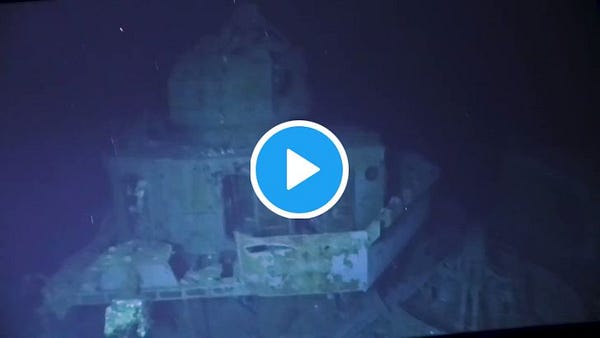📝 🗺️ Jobs Update + Picks of the Week
450 new openings at CNN, Google, Sky Sports News, The Guardian, LA Times, Reuters, Politico, The Economist, The New York Times and Toronto Star
Hey folks, Daniel here. I had a migraine on Friday, hence the lack of Picks of the Week. So we’re in for a double issue today with a massive update to the job board (almost as big as my migraine) followed by a juicy round-up of the most important and interesting news from around the world.
We’re short for space today so we’ll get right to it, but be sure to check out last week’s Inside The Middle East, which included the news of Egypt’s first female ship captain being wrongly blamed for the Suez Canal blockage, despite being on another vessel hundreds of miles away…
Okay, new jobs and data below, take it away Sophie!
Job Corner ✍️
A whopping 450 new jobs and internships were added to the board over the weekend, including at the likes of CNN, Consumer Reports, Evening Standard, Foreign Policy, Google, Los Angeles Times, Morning Brew, Sky Sports News, The Economist, The Guardian, The New York Times, The Washington Post and Toronto Star…👇
If you’re a paying member, your jobs sheet link will remain the same. Interested in a free week’s trial? Reply to this email and we’ll hook you up!
Data Corner 🧮
A few datasets referenced in today’s edition…
Worldwide Conflict: Global conflict tracker/database, from CrisisWatch
Displaced People: Global displaced people database, from the UN
Press Freedom: Freedom of the press rankings, from Reporters Without Borders
Underwater Culture: Landing page for several datasets of underwater cultural heritage sites and wreckages, from UNESCO
Colombia-Venezuela Conflict Sparks Wave of Migration
We start this week on the Colombia-Venezuela border, where almost 5,000 Venezuelan refugees are staying in temporary shelters, after fleeing their homes due to escalated conflict between Venezuela’s military and Colombia’s dissident FARC groups over disputed illegal drug trafficking routes. Venezuela’s elite military unit, known as the FANB, launched violent house-to-house searches to look for dissidents, many of whom have taken up arms again after signing a peace deal with the Colombian government in 2016. But innocent civilians were caught up in the violence, with witnesses describing extrajudicial killings and arbitrary detentions, and regular explosions and gunshots.
Approximately five million refugees have left Venezuela as a result of the country’s ongoing socio-economic-turned-humanitarian crisis. The majority now live in Columbia, and in February the country granted temporary protected legal status to around one million, making it easier for them to work and access health services. While conflict on the border is common, many human rights workers said this is the worst crisis they’ve seen in decades.


Mozambique Latest ISIS Victim
To Mozambique next where hundreds of people have fled the northern part of the country after an ISIS-claimed terrorist attack killed dozens and displaced at least 11,000. The country’s military said it has regained full control of the town, but considerable physical and psychological damage have been done. President Filipe Nyusi said he’s working with the international community to assess his nation’s needs after the worst terror attack since the start of the armed insurgency four years ago.
The province of Cabo Delgado has been regularly disputed by local al-Shabab militia, or “the Youth”, who claim allegiance to ISIS since 2017, and violent attacks are common. In the past three years, almost 700,000 people have been displaced, according to the UN, and more than 570 violent incidents took place in Mozambique during 2020 alone. According to a special report from Sky News’ Alex Crawford, the ISIS flag exists because of convenience, with the Mozambique group having no identifiable leader, no ideology and no clear motives.

Previous Picks of the Week 👀
🔎 Picks of the Week — March 19
🔎 Picks of the Week — March 12
🔎 Picks of the Week — March 5
Violence Erupts in Northern Ireland
To Northern Ireland next where protesters hijacked and torched a bus during the sixth night of violent demonstrations over disputes between nationalist and loyalist factions. Nearly 90 police officers have been injured in what’s being called the country’s worst violence for years, though tensions settled slightly over the weekend. The country’s First Minister Arlene Foster and UK Prime Minister Boris Johnson condemned the attacks, calling for an immediate end to the violence.
The new wave of violence comes 23 years after the Good Friday Agreement was passed to end conflict between pro-British Protestant loyalists, and Catholics in favor of a united Ireland, a period known as the Troubles. While it’s unclear exactly what’s behind this round of violence, a hatred of the police, politicians and Covid-19 restrictions have likely fuelled the clashes, most of which have taken place in constituencies where loyalists have significant influence.
Video: What’s caused unrest in Northern Ireland?
Tanzania President Lifts Media Ban
We visit Tanzania where new President Samia Suluhu announced she will lift the media ban implemented by her predecessor John Magufuli, who passed away last month. Suluhu served as Magufuli’s vice president and, according to the country’s constitution, was sworn in after his death to serve the remainder of his five-year term. She looks to have immediately dampened rife censorship under Magufuli.
Since the beginning of Magufuli’s presidency in 2015, Tanzania enacted a wave of legislation to restrict the rights of journalists, bloggers, activists, and politicians, among others. The country’s press freedom is currently ranked 124th of 180 countries, according to Reporters Without Borders, and reports by Amnesty International and Human Rights Watch suggest press freedom plummeted even further during the Covid-19 pandemic, when statistics went underreported. Speaking of her decision to lift censorship on Tanzanian media outlets, Suluhu stated, “We should not ban the media by force. Reopen them, and we should ensure they follow the rules.”


Help Us Out?
Hey there, each and every newsletter takes several hours and people to put together. Help us to continue providing the job board and global news roundups with a subscription for yourself or someone else. Thanking you 🙏
China Steps Up Military Pressure on Taiwan
Moving to Taiwan now, where military conflict looms after China sent a dozen warplanes into Taiwanese air space in a show of force against the self-ruled island. In response, Taiwan vowed to fight to the end if attacked, which Beijing has vowed to do one day. This is the latest in a string of Chinese military displays aimed at Taiwan, which have increased since 2016 and made worse by the reelection of Taiwanese President Tsai Ing-wen, who rejects the idea the island is part of mainland China. Taiwanese polls show agree.
However, the communist Chinese government sees Taiwan as a “breakaway province” that will eventually become part of China, despite having never governed the island. In response, Joe Biden’s administration pledged to protect Taiwan in an attempt to avoid a potential armed conflict. Taiwan isn’t the first country to be on the receiving end of Chinese military pressure. Last month, 200 Chinese boats gathered at a reef in South China claimed by the the Philippines, also triggering panic in the region.
Video: Why are China-Taiwan tensions rising?
Divers Discover World’s Deepest Shipwreck in Philippines
On that note, we’ll finish today in the Philippines, where U.S. divers conducted the world’s deepest shipwreck dive to reach a destroyer sunk during World War II. The ship, named USS Johnston, is nearly 6,500 (21,325 feet) deep and sank on October 25, 1944 during the Battle of Leyte Gulf, while its crew fought to liberate the Philippines, a former U.S. colony, from Japanese occupation.
While the team of divers took the opportunity to photograph, film, and survey the wreckage, wartime shipwrecks in Southeast Asia haven’t always been used for analysis purposes. In 2017, dozens of shipwrecks fell victim to illegal looting in attacks believed to have destroyed almost 40 ships. Opportunistic divers were looking for valuable metals such as copper cables, or precious treasures. According to the 1982 UN Law of the Sea, however, the flag state where the vessel is registered is entitled to jurisdiction over the shipwrecks, unless they’re explicitly abandoned.


That’s all for today. See you on Thursday for another Inside The Middle East! 👋





